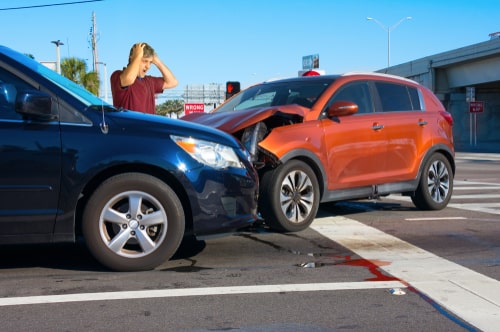According to the World Health Organization, an estimated five million people across the globe are diagnosed with epilepsy every year. When you take into account the possibility of blackouts and seizures, many people wonder if an epilepsy diagnosis will mean they are no longer allowed to drive. More importantly, will they be held liable if they have an epileptic seizure that causes a car accident?
Will I be held responsible if my epileptic seizure results in an accident?
At Shapiro, Washburn & Sharp, our reputable Virginia car accident attorneys have years of experience in handling personal injury cases involving medical conditions. If you recently experienced a seizure while driving or were involved in a seizure-related car accident, our skilled lawyers can evaluate your case in a free consultation, ensure you understand your rights, and determine if you are entitled to compensation.
What is an Epileptic Seizure?
Epileptic seizures are the result of a sudden uncontrolled burst of electrical activities in the brain. These seizures can produce a range of symptoms, including changes in behaviors, sensations, muscle movement, and awareness. They can also cause a temporary loss of consciousness. Not everyone who has epilepsy is at risk of experiencing seizures while driving, but the possibility is always there.
What Are the Hazards of Driving with Epilepsy?
In someone with epilepsy, driving can pose serious dangers, even if you are taking an effective medication. In 2015, the U.S. Centers for Disease Control and Prevention reported that less than 50% of epileptics who were on medication were free from seizures. In someone with epilepsy, a seizure can take place at any moment. During that time, as well as the minutes leading up to it, multiple symptoms that impair driving ability can arise, such as:
- Confused thinking
- Loss of consciousness
- Uncontrollable bodily movements
- Impaired cognitive function
- Anxiety
- Inability to focus or concentrate
- Persistent headaches
- Temporary paralysis
- Lapses in memory
Who is Liable for an Accident Caused by a Seizure?
Since seizures are a medical issue, establishing fault for a seizure-related accident is challenging. Virginia driving law requires all drivers to show reasonable caution and take any steps necessary to prevent accidents, even if they have a medical condition. For an epileptic, this includes obeying their driving restrictions, attending all scheduled doctor’s appointments, and promptly reporting any and all changes in their condition.
From a legal standpoint, an epileptic person could be liable for a crash if they failed to declare their condition or violated their driving restrictions. Liability could also extend to licensing agencies or medical providers if they failed to properly treat or advise an epileptic regarding their driving eligibility.
Reporting Medical Limitations
Although medical personnel are not legally obligated to report patients who are diagnosed with epilepsy, they do have the ability to do so. In fact, doctors can report anyone with a condition that is known to interfere with the safe operation of a vehicle. In addition to this, other people like law enforcement officers, judges, courts, relatives, or other citizens can voice their concerns by sending a signed letter to the Virginia Department of Motor Vehicles. The DMV could then compel the individual to be medically evaluated or provide medical documentation of their ability to drive.
Call Us if You Need a Legal Advocate
If you were injured in a car accident caused by someone having an epileptic seizure or if you experienced a seizure while you were driving, it is crucial to work with an experienced Virginia personal injury attorney.
You can meet with an experienced member of our legal team about your rights and options for compensation by calling (833) 997-1774 or via the contact form on our website.
Related Content
- What Happens When a Driver Has a Medical Emergency That Causes a Car Accident?
- Sudden Medical Emergency Defense in Virginia Car Accidents
- Medical Emergency Defense in Car Accident Claims
- Virginia Car Accident Guide
